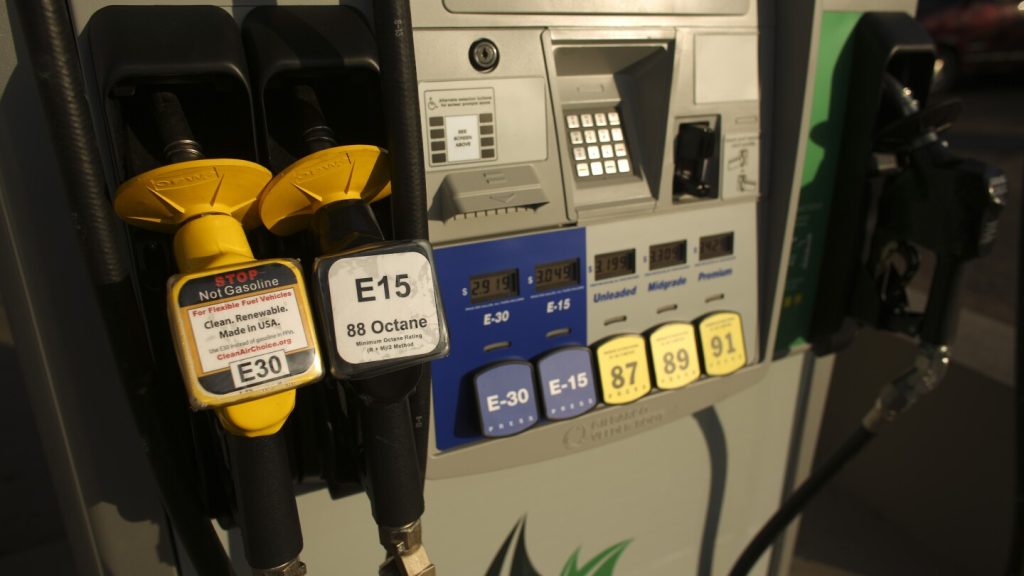The Environmental Protection Agency has cleared the way for a higher blend of ethanol to be sold nationwide for the third summer in a row. This decision comes as a response to global conflicts that are putting pressure on the world’s fuel supply. The agency announced an emergency waiver that will allow gasoline blended with 15% ethanol to be exempt from an existing summertime ban. This move is intended to help extend gasoline supplies, prevent fuel shortages, protect air quality, and reduce carbon emissions.
The biofuels industry and politicians in Midwestern states where ethanol is produced from corn have praised the EPA’s decision. They see ethanol as a product that benefits farmers, reduces prices at the pump, and is more environmentally friendly than gasoline. Iowa Governor Kim Reynolds hailed the decision as a victory for Iowa farmers, American energy independence, and consumers. However, environmentalists have raised concerns about increased ethanol production leading to higher carbon releases due to increased corn production and the use of fertilizers, which contribute to water pollution.
Most gasoline sold in the country is currently blended with 10% ethanol, but 15% blends are becoming more common, particularly in the Midwest. The EPA has approved sales of E15 for cars and trucks manufactured after 2000. The Renewable Fuels Association estimates that using the higher blend will cost consumers more than 25 cents less per gallon compared to the 10% ethanol blend. Earlier this year, the EPA also permanently approved year-round E15 sales in eight Midwestern states, with the waiver announced being temporary and only applicable for this year.
Iowa is the leading state in ethanol production, followed by Nebraska, Illinois, South Dakota, Minnesota, and Indiana. The decision to allow the higher blend of ethanol to be sold nationwide is viewed as a positive step by those in the industry and in states heavily involved in ethanol production. They argue that it will help mitigate fuel shortages, maintain air quality, and reduce carbon emissions. However, critics remain wary of the environmental impacts of increased ethanol production, particularly in terms of carbon releases and water pollution.
The waiver announced by the EPA comes in response to ongoing global conflicts, including Russia’s actions in Ukraine and conflicts in the Middle East, which have strained the global fuel supply. EPA Administrator Michael Regan cited these conflicts and the diminished U.S. refining capacity as factors warranting the waiver. The decision to allow the higher blend of ethanol to be sold this summer is seen as a proactive measure to address potential fuel shortages and maintain air quality during the warmer months when concerns about smog are heightened.
Overall, the EPA’s decision to allow the sale of gasoline blended with 15% ethanol nationwide for the third consecutive summer has been met with a mix of praise and criticism. Supporters see it as a step towards ensuring fuel supply stability, protecting air quality, and reducing carbon emissions, while critics highlight concerns about increased ethanol production contributing to environmental issues like carbon releases and water pollution. The debate around ethanol usage and production continues to be a complex and multifaceted issue, with stakeholders on all sides weighing the benefits and drawbacks of this renewable fuel source.


